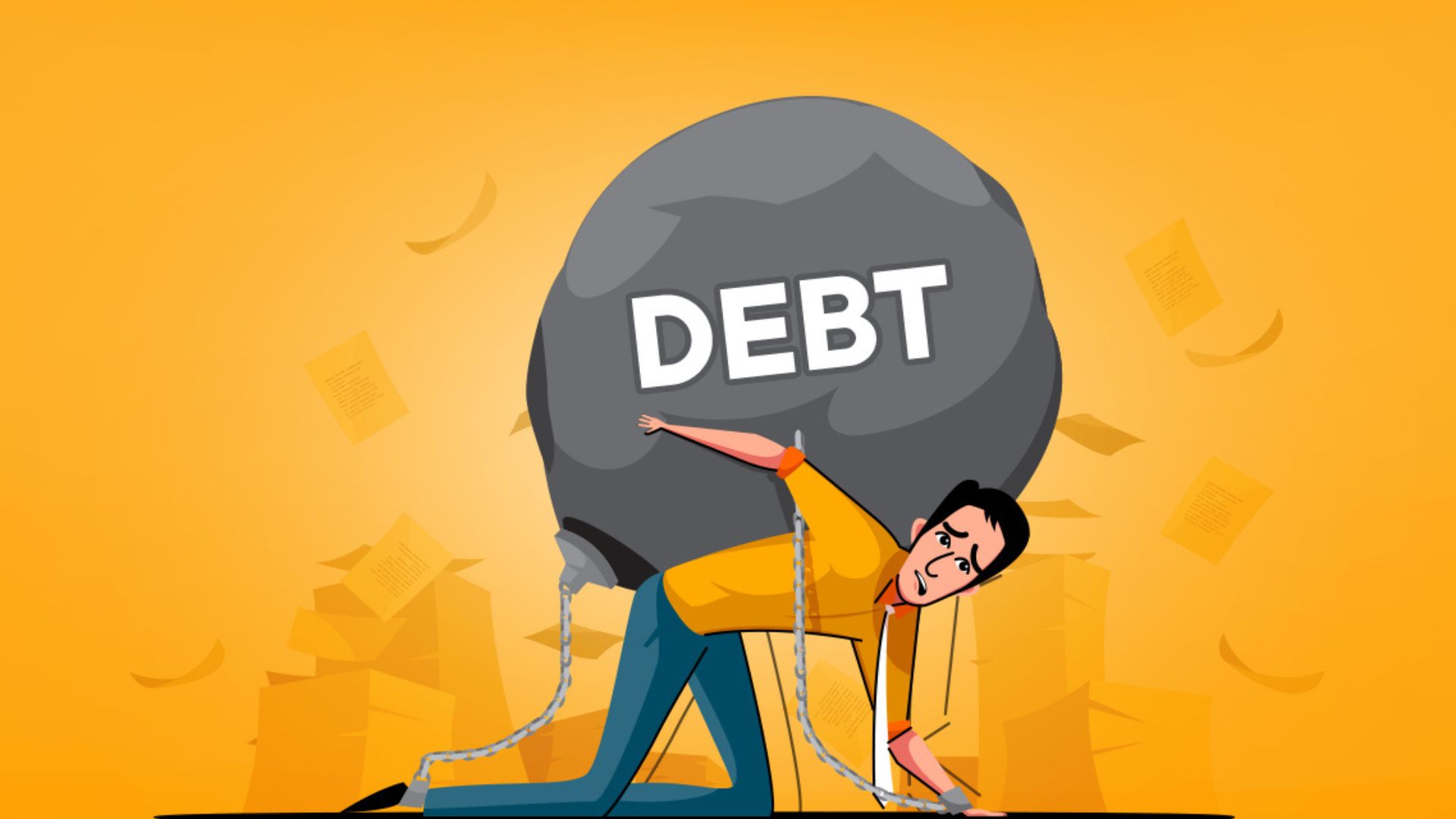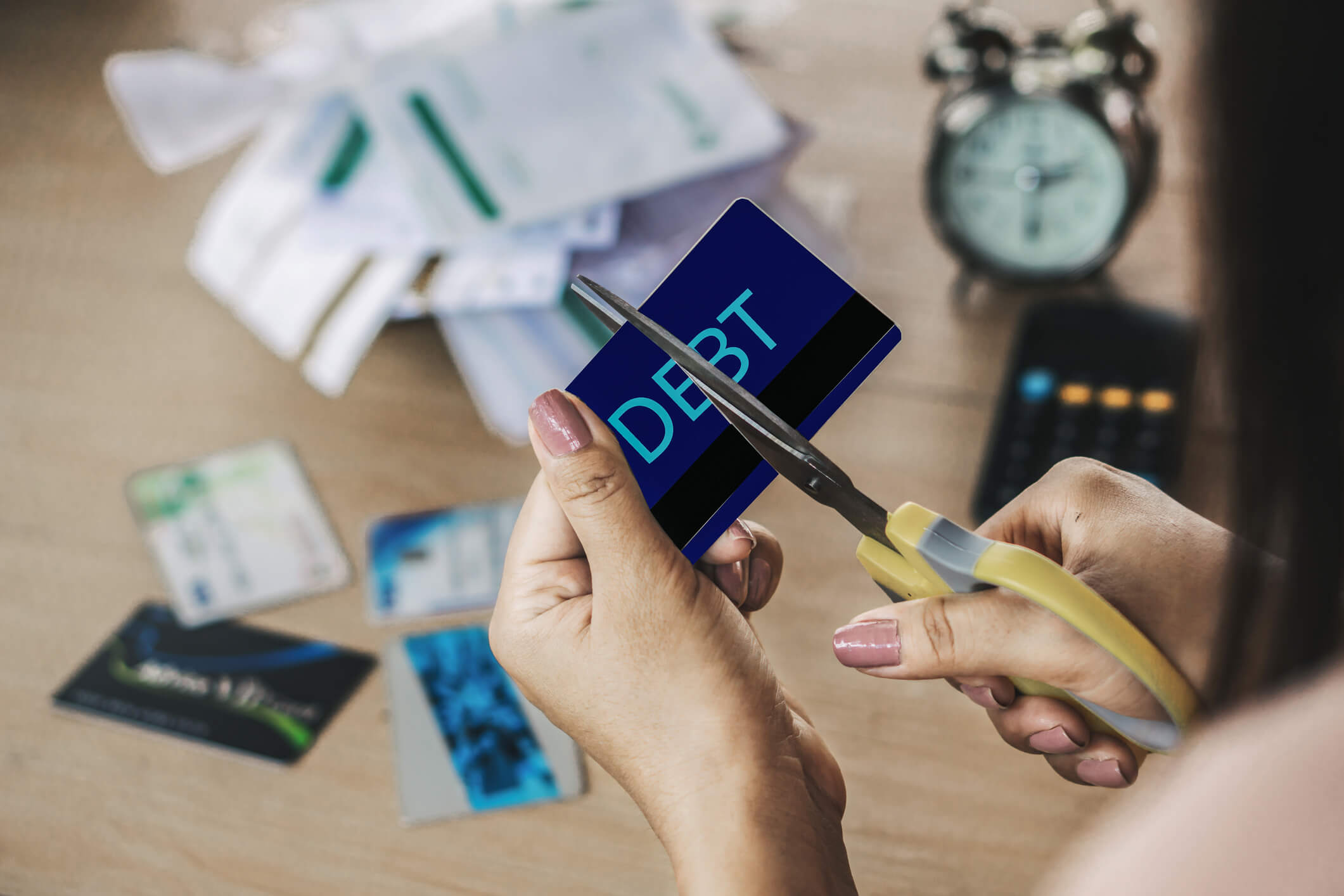How To Avoid Debt This Holiday Season?
Are you wondering how to avoid debt this holiday season? As the festive cheer approaches, it's crucial to plan strategically to ensure you don't fall into financial pitfalls. The key to a debt-free holiday lies in proactive measures. Start by crafting a realistic budget that aligns with your financial capabilities. Embrace the spirit of mindful spending by keeping a keen eye on your expenses.

Morgan Barrons
Jan 17, 2024
People often want to go the extra mile when they give gifts to people they care about during the holidays. But the prices of things, like gifts, are going up, which can cause many people to spend more than they mean to or, even worse, start the new year with less debt to handle.
The holiday season is still going on, which is good news because there are still ways to enjoy the season without spending too much money. Planning and being careful with your spending can help you get through the holidays without getting stressed out about money.
In this article, we will talk about how to avoid debt this holiday season? Whether you're a seasoned budgeter or someone new to the concept, this post aims to equip you with the knowledge and tools necessary to enjoy the holidays without compromising your financial well-being. Let's embark on a journey of festive cheer without the looming shadow of post-holiday debt.
Importance Of Avoiding Debt During The Holidays
It is impossible to overestimate the importance of staying debt-free over the holidays since it has a direct influence on long-term stability and financial well-being. People are sometimes tempted to overspend during the holidays, which can result in a debt cycle that lasts long after the decorations are taken down.
Avoiding holiday debt is primarily about maintaining financial independence. Repayment obligations might last far into the new year, making it difficult to meet basic needs or achieve personal objectives. By exercising financial restraint throughout the holidays, you can guarantee that funds will be available for pressing needs and unforeseen crises.
Moreover, avoiding clear of holiday debt boosts mental and emotional well-being. Stress-related to money can cloud what ought to be a happy occasion, harming relationships and mental health. People who prioritize a debt-free celebration are able to fully enjoy the festivities without having to worry about money.
Avoiding holiday debt also means investing in your future financial objectives. Unnecessary debt eats away at savings and constricts possibilities for new ventures. People may start the new year with a clean financial slate and set themselves up for better success and financial stability in the months ahead by adopting a disciplined attitude to holiday spending.
16 Ways To Avoid Overspending And Debt In The Holiday Season
Recognize Your Spending Triggers
Emotions that make you want to spend money are known as spending triggers. Subconsciously, you may have a spending trigger if you find yourself buying things out of worry rather than necessity.
Consider how you feel after purchasing if you want to prevent impulsive purchases over the holidays. This helps you determine whether specific circumstances make you want to purchase. Recall that you may make the season memorable for your loved ones without taking into debt.
After you've determined what triggers you, take action to prevent them or find an alternative activity to shopping. Try taking a stroll instead of shopping, for instance, if you shop when you're anxious.
To resist the urge to buy, you may also remove shopping applications from your phone and unsubscribe from store emails. Enforcing a waiting period prior to making a transaction is another ruse. After giving the thing some thought, likely, you won't desire it.
Limit Your Holiday Expenditure
By only purchasing items that can be securely withdrawn from your bank account, you may give your credit card and your mind a vacation. Take advantage of this chance to develop or update your budget and use it to determine how much you can afford to spend.
The money that doesn't go toward paying bills is the amount you can afford to give as presents. However, this doesn't have to be limited to the money you have left over at the end of the month if you want to have a little extra to spend.
Additionally, you may utilize money that you would often spend on other things, like your daily cappuccino. You're doing well as long as you're only utilizing cash (not credit card cash advances) and not using up your rent money.
Avoid Using Your Credit Card For Gifts.
Stay aware of the buy-now-pay-later credit card trap if you tend to overspend or regularly forget to pay off your debt. According to a Finder pollon Christmas spending figures, over half (56%) of Americans said they plan to pay for some presents on their credit card. US consumers presently owe over $1 trillion in credit card debt.
The majority of Americans (42%) said they want to spend between $20 and $49 on each present. Spending an average of $35 on gifts for each member of your large family or broad circle of friends may rapidly mount up, mainly if you use a high-interest credit card and let the debt accumulate. But, using a rewards credit card to cut costs might be a smart move. Just make sure you only spend money you can pay off right away to avoid going over your credit limit.
Make A Budgeted List
You will be less likely to make impulsive purchases if your shopping list includes a breakdown of your budget. Allocate a comfortable sum of money for essential vacation purchases after taking an honest look at your circumstances.
Next, divide that sum evenly among your holiday spending, including presents, decorations, food, entertainment, and travel. Remember that a kind present comes from the heart; make a note of where you might be able to cut back! There are many inexpensive, heartfelt DIY gift ideas available.
Additionally, remember to set aside a variable fund in case you find something sparkling that you really must have. One excellent strategy for preventing unforeseen expenses from going over budget is to set aside money for impulsive purchases.
Open A Separate Savings Account For The Holidays
To help you stay inside your budget, consider creating a particular savings account for the holidays. To determine the average amount you spend during the holidays, look at the amounts you spent in previous years.
Next, make a strategy and save the necessary funds throughout the year rather than depending on your next paychecks to get you through the season. To do that, you may set up an automated savings plan, which entails depositing a certain amount of money every time you are paid into a sinking fund or separate account.
Use that other account for holiday shopping to avoid using your regular checking account. However, remember to keep an eye on your other retirement and savings accounts. Your ability to save should be improved by the amount you spend on holidays.
Consider creating a high-return savings account, such as those provided by Synchrony Bank, to earn additional money all year long. With no minimum deposits or monthly fees, it's a terrific method to help grow your savings.
Take Advantage Of Free Events And Holiday Sales
Once your shopping list is ready, follow your favorite local stores and sign up for newsletters from the stores you want to purchase gifts from. You'll be the first to learn about deals and promotions in this way.
To cut expenditures on catering, consider having a potluck or serving light snacks on occasions rather than a full meal. Holiday-themed leisure activities are usually available on local tourist websites or social media accounts; check yours to see what's accessible in your area. It's a beautiful way to enjoy the festivities without having to worry about breaking the bank.
Become A Coupon And Coupon Code Collector
You may get amazing discounts on the items you wish to give your loved ones without having to wait for sales. Look for coupons for your preferred online retailers on the internet before you start shopping.
Go through the coupons in your mailbox before you purchase at local retailers. Make careful to compare prices on the item you're interested in when perusing the fliers. Keeping a look out for sales could lead to savings.
Avoid Excessive Impulse Buying
As previously indicated, setting aside a small sum of money to cover unforeseen costs can make it more likely that you will adhere to your holiday spending plan. However, use caution when making large impulsive purchases, whether shopping for other people or just passing the time by browsing.
It may be among the leading causes of debt accumulation. A buying frenzy may be sparked by the joyful mood together with FOMO marketing strategies like "limited-time offers" and "flash sales."
Consider whether the item is essential and if it is worth using your variable purchase funds. When you see "wants" while you are shopping, it's also a great time to make a wish list that you may refer to later or save for later.
Provide Personalized Gifts
A simple, well-considered present is more valuable than a costly one that the recipient would never use. Start the holiday by considering what the people on your list could genuinely use, and resist the urge to spend at fashionable boutiques.
For instance, you might spend less than $10 for an essential pastry tool and a copy of a tried-and-true recipe for your sister if she enjoys baking but needs help with producing handmade pie crusts.
Get Your Shopping Done Early
The holiday shopping season begins earlier and earlier every year. Thanksgiving deals have begun in September by certain stores! To assist with holiday savings, make sure to search online for discounts and coupons.
Early buyers benefit from the finest goods options. Consider making “big ticket” purchases such as appliances and gadgets when the costs are low. Retailers usually provide price reductions a few months prior to the holidays and again immediately following their conclusion. You might want to wait if you missed this year's massive sale.
Make A Savings Pact
It's likely that your loved ones are also under financial strain. Invite them to participate with you in a savings plan where gifts must total no more than a specific amount. Instead of buying presents for every member of your family, think about adopting a Secret Santa strategy and drawing names.
Although not a novel concept, this works well for families on a tight budget. You'll be far more inclined to exercise caution if you feel that you're being held accountable by others.
Think Outside The Box
many inexpensive gift alternatives look just as good as conventional store-bought goods. For example, you may smile all year long for as little as $10 with a monthly book subscription.
Because payments are spaced out over the year, upgrading a sports TV package doesn't cost much upfront. Give the gift of family history by presenting a personalized picture book that was digitally developed or printed online by a printer that prints on demand. If you think creatively, you'll get even more inexpensive concepts.
Consider Thrifting
Not every present has to be brand-new. Consider purchasing secondhand goods this year to cut costs on gift-giving. Great prices may be found at local thrift stores, on Facebook Marketplace, and through used apps like Vinted. Moreover, purchasing secondhand goods benefits the environment.
Regifting is another option, particularly for stuff you no longer need but the receiver would adore. Alternatively, think about exchanging a thing for a ticket to an event or the gift of time spent with people. Ultimately, the spirit of the holidays lies in the thoughtfulness of the present rather than its cost.
Limit Spending On Yourself
With all of the Christmas deals, it's simple to overspend on yourself. Although indulging yourself is perfectly OK, keep an eye on your excess expenditure and set a limit on these purchases. Every penny matters, and your holiday budget frequently does not account for this additional expenditure.
Give Experiences Instead Of Things
Give experiences rather than tangible goods if your generosity exceeds your means. While the enjoyment from store-bought presents might be fleeting, experiences frequently provide more joy and lasting memories.
A fancy sweater or a new kitchen gadget are not nearly as valuable as hiking or having a picnic by a lake with a loved one. Other suggestions include doing extra shifts to care for aging parents, babysitting, and running errands.
Realize You Don’t Have To Outdo Yourself
Every year, there is pressure to purchase for the holidays in a more extravagant and hectic way than the previous year. With high expectations established by friends, family, acquaintances, or influencers, social media makes it even more difficult.
However, there's no need to surpass yourself or meet irrational standards because nobody genuinely cares about you wanting to go into financial difficulties.
How To Pay Off Debt From Holidays?
There are a few tried-and-true, fundamental strategies for handling Christmas debt. To take on debts with confidence, try one or more of these strategies.
Personal Loan
Paying off debt from Christmas shopping might be simpler and less expensive with a low-interest personal loan. One option is to combine high-interest loans from several sources into a single loan with a reduced interest rate.
This saves you money over time by enabling you to budget and organize your debt. You will know just how long it will take to pay it off and will only have to make one set monthly payment.
Holiday Bonuses
Did you receive a raise at work this year? A lot of holiday bonuses arrive at an enticing moment and are promptly spent on something you "wanted," such as a brand-new big-screen television. After that, you start to spend money on holidays as usual, which leads to credit card debt.
Saving your bonus money till after the holidays can be a wiser move. First, buy gifts for other people, and then use the remaining funds for yourself. And if you get a tax rebate or an unexpected windfall, use it to pay off debt or preserve it for next year.
Credit Card Balance Transfer
A credit card with a 0% balance transfer might be beneficial if you have taken on more debt than you can rapidly pay off. With these cards, you may transfer debt to them and receive interest-free repayment terms of up to eighteen months (sometimes longer, sometimes shorter).
For customers who are trapped with significant debt on a credit card with a high-interest rate, that may be of great assistance. But keep in mind that there is often an upfront fee of 3% to 5% of the transferred amount with these cards. Furthermore, if there is a balance on the card beyond the grace period, interest rates may increase significantly.
Request A Credit Card Rate Reduction
Make a call to your credit card provider and request a reduced interest rate. They can only refuse, which is the one drawback to this tactic. It's worth the work regardless of your credit score, although having high credit may increase your chances. If you fail the first time, give it a few weeks off before trying again.
The Debt Snowball
Pay off your lowest debt first, then go up in size until you've paid off your most considerable. You'll accumulate extra money as you settle the lesser bills, which you may use to settle the more significant obligations.
Debt Reduction
You may also look for outside assistance in the shape of a debt reduction firm, though this will come at a cost. These businesses assist clients in weighing their choices, which include debt negotiation, DMPs, and consolidation.
Frequently Asked Questions
What's The Significance Of Starting Early With Holiday Savings?
Starting early allows you to accumulate funds gradually, reducing the need for last-minute, high-interest borrowing.
How Can Comparison Shopping Help In Avoiding Debt?
Comparison shopping ensures you get the best deals, maximizing your purchasing power and minimizing expenses.
Why Is It Recommended To Set Up A Dedicated Holiday Savings Account?
A dedicated account separates holiday funds from regular expenses, making it easier to track and manage spending.
Final Thoughts
Talking about how to avoid debt this holiday season? Navigating the holiday season without accumulating debt is not only achievable but crucial for long-term financial well-being. By diligently assessing your financial situation, planning, and adopting innovative shopping strategies, you can enjoy the festivities without the looming shadow of post-holiday debt.
Embracing open communication, alternative celebrations, and maintaining a focus on experiences over material gifts further contribute to a joyous and financially responsible celebration.
Remember, the true essence of the holidays lies in the moments shared with loved ones, and a debt-free season ensures a brighter start to the new year, fostering peace of mind and continued financial success.



